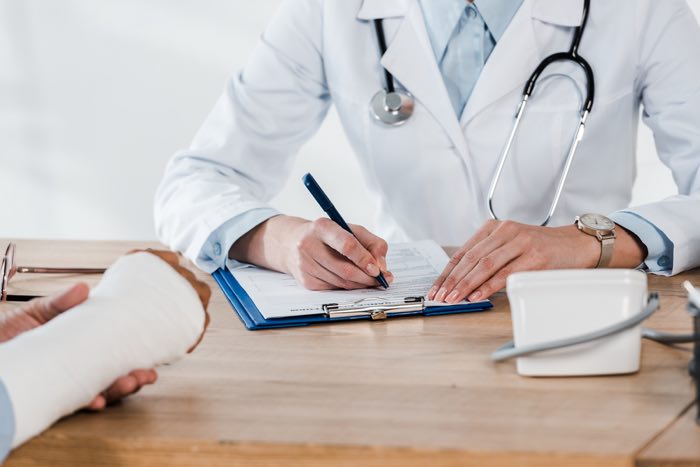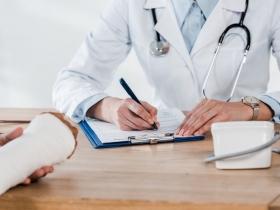Egg Donation Guide
Women who choose to donate eggs have many questions that are associated with this process. One of the first is why donate eggs? In addition to the financial reward associated with donation, it is an opportunity to help couples who fail to conceive naturally or through other methods of artificial insemination, such as intrauterine insemination (IUI) and others. If a woman decides to donate, the doctors will guide her through the whole process at the IVF clinic. If you are considering donating eggs, read what it all means.
Why donate eggs?
Male and female infertility is currently becoming a relatively serious problem, and for many women, a donated egg is the only chance to get pregnant. The in vitro fertilization method is approached when all other attempts to conceive have failed. It is recommended to start infertility treatment after about a year, when a couple cannot conceive naturally. Women who decide to donate their eggs (oocytes) are thus a hope for those who long for a child but cannot achieve it. The donation program thus represents a chance for a new life.
Egg donors have several reasons for their decision. These may be women who already have their own children and want to help a family and others to achieve happiness. Women who are not yet planning their own children are also coming to the Gynem IVF clinic in Prague. A certain motivation is also financial compensation of costs and time associated with egg donation and this can reach up to 28,000 CZK as well as complete physical and gynaecological examinations. According to the law and medical ethics, every woman who decides to join the donation program is guaranteed 100% anonymity and the recipient of the eggs will never know from whom they obtained the eggs.
You will receive comprehensive information about your health condition
If a woman decides to donate eggs, she must first have a consultation at an assisted reproduction clinic. The doctor will explain in detail the whole process, how to prepare for it and what will happen after it. Thanks to gynaecological, genetic and medical examinations, the donor has a chance to obtain complete information about her health and fertility. Under normal circumstances, such examinations are not performed, and if a woman wanted to undergo them, it would cost several thousand crowns.

How to donate eggs?
The first step in donating eggs is an initial interview at an IVF clinic, where a gynaecologist will discuss your family history, perform a gynaecological examination and have your blood taken for serological tests. Thanks to these tests, it is possible to rule out various diseases, such as jaundice, sexually transmitted diseases, hormonal problems or genetic burden, which are an obstacle to egg donation. The donor must be of legal age and must not exceed the age of 35, although for some assisted reproduction clinics the upper limit is lower. It is also possible to sign up for egg donation via the contact form, on the basis of which the clinic will contact you and arrange an appointment with you.
If you pass the hormonal, genetic and serological tests, you will be accepted into the egg donation program. At this stage, the next step is stimulation. Before the collection itself, it is necessary for the woman to inject herself for about ten days before the procedure with drugs that help the growth of follicles (future eggs). Hormonal stimulation increases the number of eggs that can be obtained in one collection. During this time, it is also necessary to undergo an ultrasound examination, thanks to which the gynaecologist will be able to determine the most suitable time for egg collection. The procedure itself takes place under general anaesthesia, which lasts about twenty minutes. After collection, it is not necessary to undergo hospitalisation and the woman goes home after two hours of observation, ideally with an escort. Approximately two to three days after the procedure, slight spotting may occur and all activities that could cause an infection (bathing, using tampons, sexual intercourse, etc.) must be avoided.
What happens after egg collection?
When collecting the eggs, the doctor uses an ultrasound and a needle to aspirate the follicular fluid together with the eggs into test tubes. These are immediately taken over by the embryologist and transferred under a microscope to a cultivation solution, which has the same temperature as the human body and is enriched with carbon dioxide. On the day of egg collection, they are then fertilised by the partner's sperm, if they have undergone a sperm count, or the sperm of an anonymous donor. Artificial insemination can be performed in several ways. The sperm and eggs are placed in one laboratory dish and the sperm fertilises the egg, or it is necessary to insert the sperm into the egg with a needle (the so-called ICSI method - intracytoplasmic sperm injection).
After egg collection, a woman should not drive or drink alcohol. At the same time, doctors recommend sufficient rest, consumption of light meals and adequate servings. The risks after egg collection are very low. Slight bleeding may occur, which resolves on its own after a few days. Very rare complications are major bleeding, bladder injuries, abdominal bleeding or infection. Egg donation is a very safe procedure that will help others to a happy family.
This article is translated from Czech original to English language by Bobby Pacewicz.






